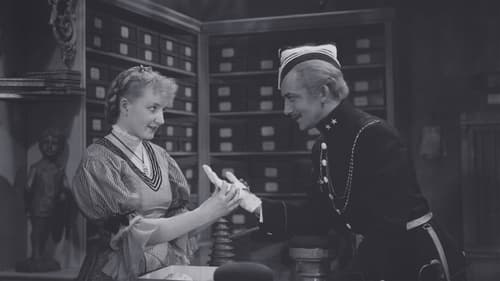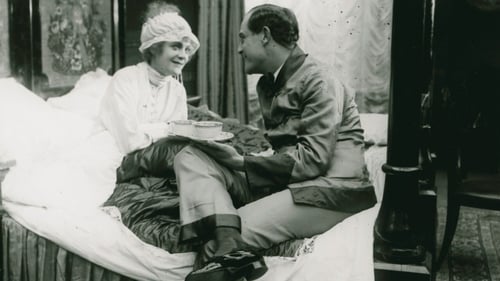
Victomte de Soto Maior
A Swedish drama from 1939 about the social and political developments in Sweden from 1885 until the dissolution of the union in 1905. The year is 1885, Christina Nilsson sings "Fourteen years I believe certain that I was" in the Grand Hotel's Great Hall . She also sings from the balcony of the hotel and the panic arising among listeners outside the hotel. In Norway, talks about the dissolution of the Union and the Swedish socialists with Hjalmar Branting (Victor Sjöström) is in the lead for independence.

Servant
A married writer's luck turns when he gets a play produced at Théâtre de Paris. He meets the femme fatale who should play the lead in his play. Passion and conflict occurs.

Guest
Frau Bessie, once a madcap, aristocratic and modern Swedish fraulein, has become now a whimsical and conservative Swedish burgess after her marriage to Herr Thomas Graal. The destabilization of the marriage begins right at the wedding (which contains some hilarious incidents) when Frau Bessie announces the first Graal child must be a girl, creating a terrible conflict with her husband who is hoping for a boy. It takes a scandal to finally end the war between man and wife.


Member of Parliament
The story is wacky – a gypsy is cursed by her father, so that she has to deny her illegitimate son in order for him to have a successful life. She gives him to a well-to-do lady who has lost her own child. Later, he has grown up to be a politician who wants to become the foreign minister. He doesn’t know that his real mother is the famous Madame de Thebes, the fortuneteller who all politicians make sure to visit! This information falls into the hands of a rival, who tries to use it to ruin his career. Meanwhile, the rival’s attractive daughter is attacked by a ruffian and needs to be rescued… There are a lot of striking images in this film. You can see the beauty of them even if the state of the print is far from perfect. The Norwegian actress Ragna Wettergreen gives a haunting performance as Madame de Thebes, with wisdom and regret – and quite a few melodramatic gestures. Understatement was not the norm in those days.



